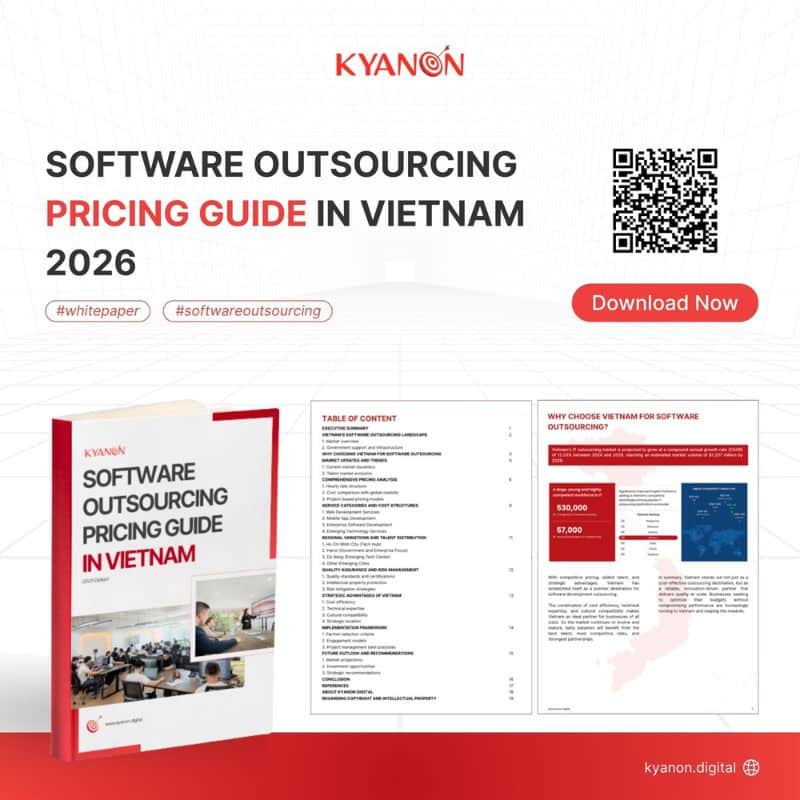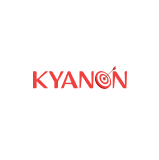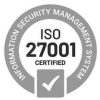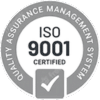Poor collaboration can silently drain resources, delay project timelines, and reduce the ROI of even the most skilled teams. When working with dedicated hiring solutions, the stakes are even higher, misalignment or communication gaps can undermine the very benefits these teams are meant to deliver. To truly maximize the impact of your dedicated team, seamless collaboration isn’t optional, it’s essential.
In this blog, Kyanon Digital will walk you through actionable strategies to foster strong, transparent, and efficient collaboration with your dedicated team, ensuring you get the best results from your investment.
Further reading:
- Need Help? A Dedicated Software Development Team Delivers!
- The Benefits Of Dedicated Team Model For Startup Agility
- 5 Best Practices For Having Success With A Dedicated Software Development Team
Setting the Stage: Foundations for Collaboration
Working with a dedicated team offers numerous strategic advantages, access to specialized skills, improved project scalability, and cost efficiency. But these benefits are only realized when collaboration flows seamlessly.
To avoid becoming part of that statistic, companies must lay a strong foundation before the first sprint begins. Here’s how to set the stage for effective collaboration with your dedicated hires from the outset.
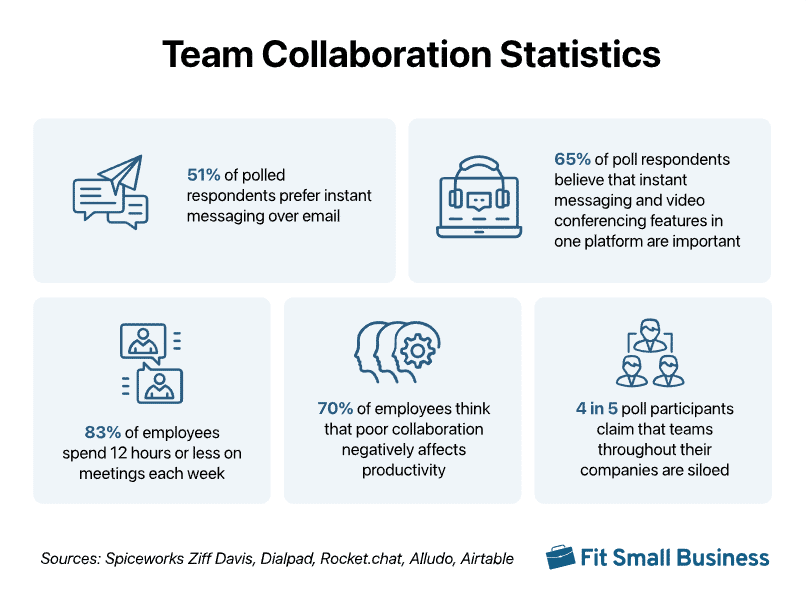
Clear Roles & Responsibilities
Misalignment often begins with unclear expectations. When team members don’t fully understand their responsibilities, collaboration quickly breaks down.
- When working with dedicated hiring solutions, avoid ambiguous role definitions. Be explicit about deliverables, responsibilities, and success metrics, especially when teams span multiple locations or time zones.
- Use role-mapping frameworks like RACI (Responsible, Accountable, Consulted, Informed) to prevent task overlap and reduce friction between internal and dedicated teams.
Strategic Onboarding for Dedicated Hires
You only get one chance to make a first impression. And in the case of dedicated hires, a well-structured onboarding process directly impacts collaboration and retention.
- According to a study by Brandon Hall Group, organizations with a strong onboarding process improve new hire retention by 82% and productivity by over 70%.
- When you onboard a dedicated team, include cultural orientation sessions, team introductions, and a guided walkthrough of your workflows and tools.
- Assign internal mentors to bridge knowledge gaps and create a sense of belonging for remote or offshore team members.
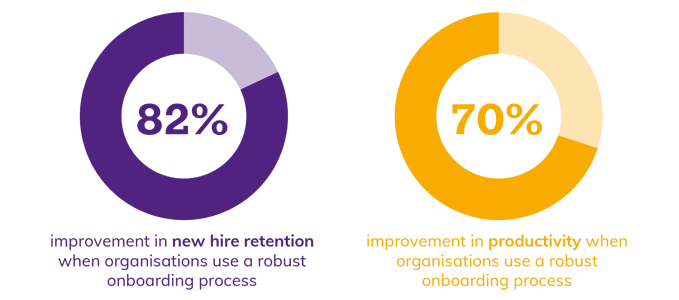
Shared Goals & Objectives
When every team member, internal or dedicated, works toward the same outcome, collaboration becomes a natural byproduct of shared purpose.
- A Gartner survey found that 84% of marketers experience frustration and inefficiency from excessive meetings, redundant feedback loops, and unclear roles. These issues hinder job satisfaction and impact the company’s ability to meet its revenue goals, highlighting the direct connection between collaboration inefficiencies and business performance.
- Go beyond project specs, explain the “why” behind your goals. Invite your dedicated team to participate in planning and retrospectives.
- Adopt collaborative frameworks like OKRs (Objectives and Key Results) to unify performance tracking and ensure everyone sees how their work contributes to company success.
Mastering Communication: The Core of Interaction
Strong communication isn’t just a “nice to have” when working with a dedicated team, it’s the glue that holds projects together across time zones, cultures, and workflows. A Deloitte study found that 73% of employees who engage in collaborative work report improved performance, while 60% say it sparks their innovation. This shows that teamwork and collaboration directly contribute to individual and team success.
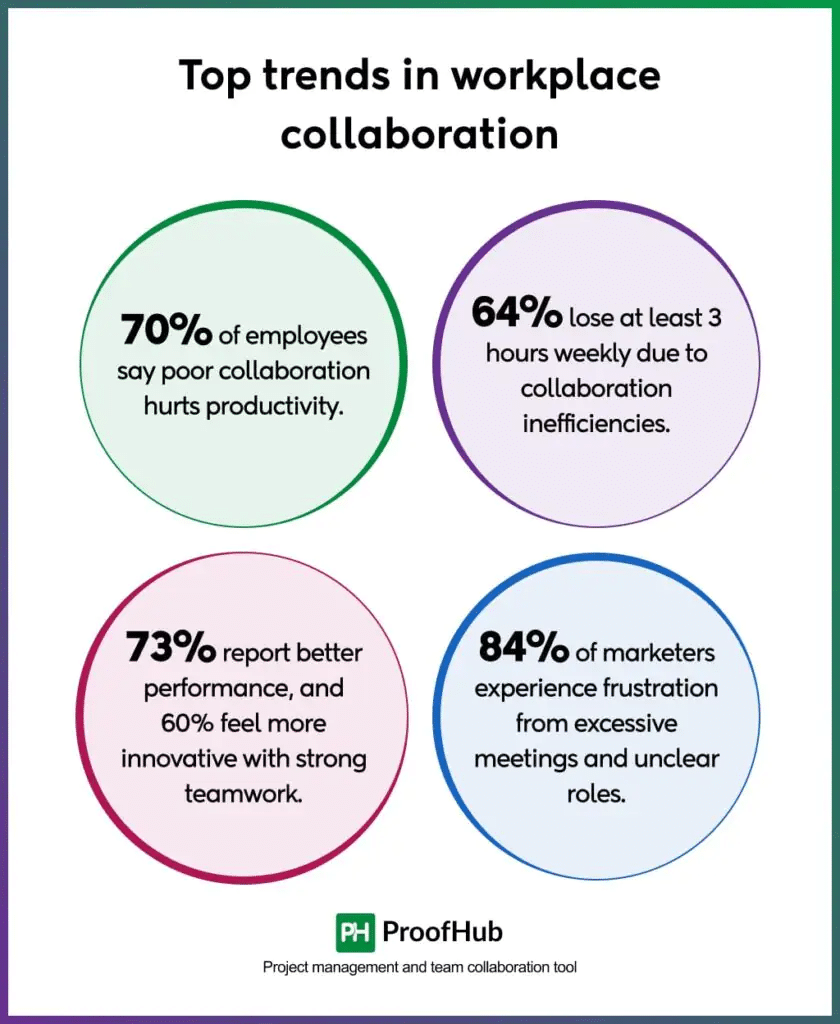
If you want your dedicated hires to deliver at their full potential, communication must be intentional, data-driven, and continuous.
Data-Driven Dedicated Team Communication Best Practices
Not all communication is created equal. Misaligned or infrequent communication can derail even the most promising projects. Applying proven best practices ensures your dedicated team stays focused, informed, and aligned.
- Schedule short, structured stand-ups and weekly reviews that focus on tasks completed, blockers, and goals ahead. Consistency builds trust and rhythm.
- Ensure that your dedicated hires receive not just tasks, but context. Understanding the “why” behind decisions leads to better judgment and fewer revisions.
Tip: Use communication KPIs, such as average response time or issue resolution turnaround to measure effectiveness and course-correct as needed.
Selecting Optimal Communication Channels
Choosing the right mix of tools makes or breaks remote collaboration. Each channel should serve a specific purpose, whether it’s daily updates, brainstorming sessions, or documentation.
- For real-time discussion, tools like Slack, Microsoft Teams, or Google Chat are ideal. These are commonly used in successful dedicated hiring engagements.
- For task management and progress tracking, pair tools like Jira, Asana, or ClickUp with your communication stack. Integration is key to streamlining workflow.
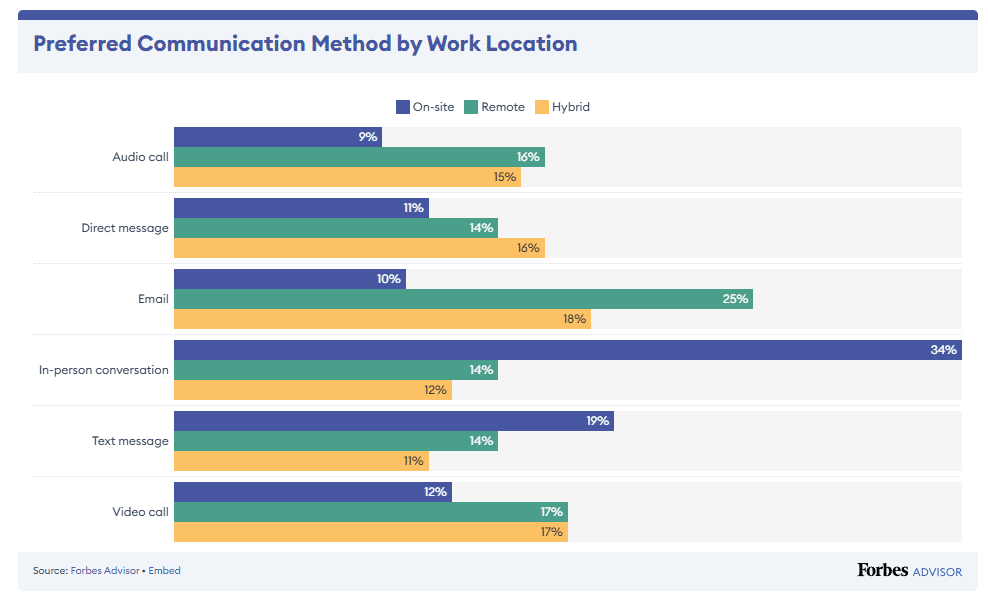
Tip: Establish communication norms early, define when to use chat, when to call, and when to log updates on project management tools.
Proactive & Transparent Updates
Silence kills momentum. Keeping stakeholders and dedicated hires equally informed fosters accountability and accelerates delivery.
- Set up regular reporting formats, such as weekly progress emails or sprint summaries. Proactivity prevents confusion and builds confidence on both sides.
- Transparency also means surfacing issues early. Encourage your dedicated team to speak up about roadblocks, unclear specs, or scope creep.
- Use collaboration tools for dedicated teams that allow for real-time status tracking, file sharing, and comments to keep everyone in sync without overloading inboxes.
Effective communication doesn’t happen by accident, it’s engineered. By applying these dedicated team communication best practices, selecting the right platforms, and maintaining transparency, you lay the groundwork for a high-performance team dynamic.
According to Forbes, over 40% of workers experience a decline in trust towards leadership and their team when communication is lacking. This is especially true for remote workers, where over half (54% leadership, 52% team) reported a trust gap due to communication issues.
Transform your ideas into reality with our services. Get started today!
Our team will contact you within 24 hours.
Leveraging Technology: Tools for Empowerment
While team structure and communication strategies lay the groundwork, it’s the right technology stack that truly powers collaboration. In today’s hybrid and globalized work models, equipping your dedicated team with smart tools is no longer optional, it’s essential.
Team collaboration tools have rapidly become essential in today’s business landscape, streamlining workflows, organizing projects, and guiding them to completion. Their popularity has surged in recent years, largely driven by the rise of remote work. By integrating various collaboration features into a single platform, these tools enable a more seamless and efficient flow of information, unlike standalone options like email, phone calls, or video conferencing, which demand greater effort to coordinate effectively.
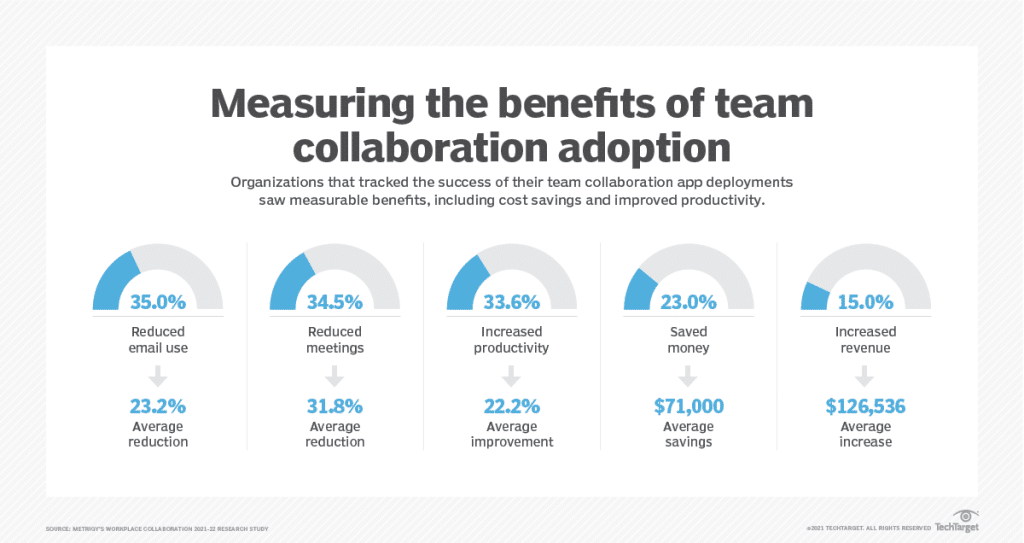
Strategic Project Management Tools
Efficient project oversight is impossible without proper tracking, accountability, and visibility, especially when working with dedicated hires across borders.
- Leading platforms like Jira, Trello, ClickUp, and Asana are top choices among teams using dedicated hiring solutions.
- Jira leads the market for the project management industry with 42.09% of the market.
- These tools offer sprint planning, backlog prioritization, time tracking, and workload distribution in one place.
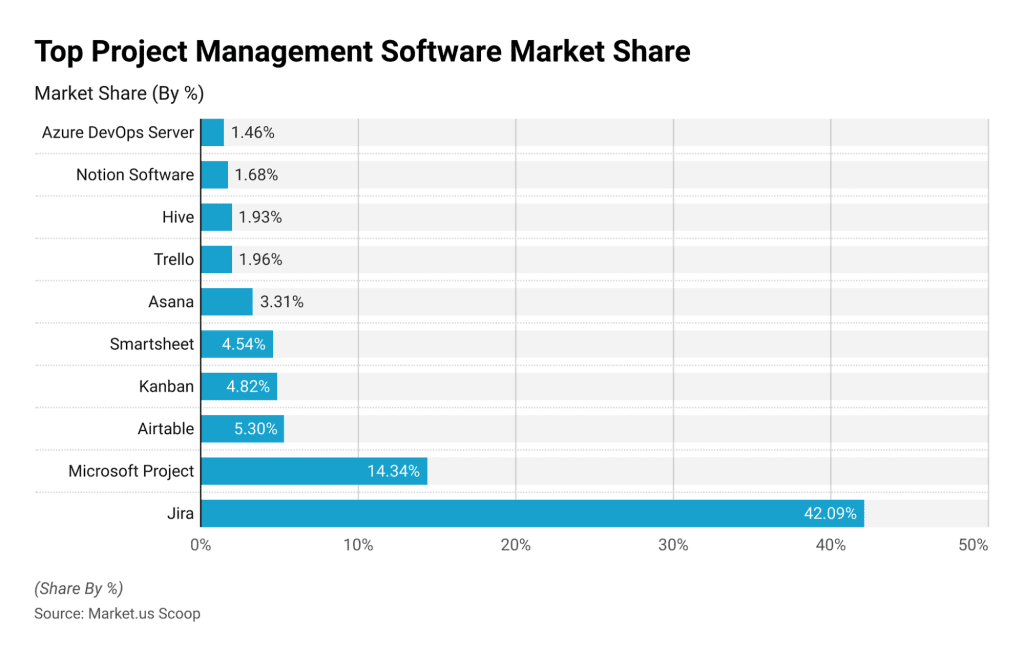
Tip: Use Gantt charts and burndown charts to give both in-house and dedicated team members clear visibility into project milestones.
Optimizing Communication Platforms
It’s not just about using a tool, it’s about using the right tool, the right way. Not every message needs a meeting, and not every issue should be a 10-thread email.
- Real-time messaging: Slack, Microsoft Teams, or Discord for day-to-day chat.
- Video conferencing: Zoom, Google Meet, or Whereby for sprint reviews, retrospectives, and team bonding.
- Voice memos and async video tools like Loom are gaining popularity for faster context-sharing, ideal for distributed dedicated teams in different time zones.
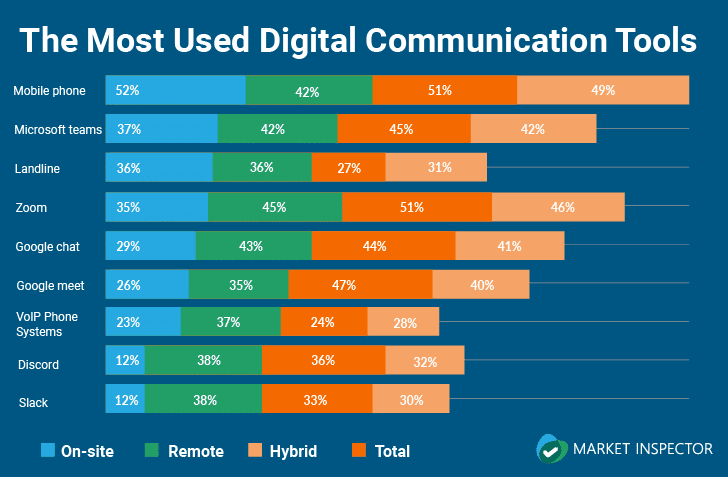
According to Forbes research, remote workers rely more on email (25%). Younger generations (18-42) prefer email and direct messages, while older generations (59-77) favour in-person conversations.
Centralized Document Management
A centralized document management system (DMS) for dedicated teams involves storing all documents in a single, unified repository, making them accessible to authorized users. This system streamlines document organization, retrieval, and collaboration, improving overall efficiency and teamwork.
Examples of Centralized Document Management Systems:
- Microsoft SharePoint: A popular platform for document management and collaboration within the Microsoft ecosystem.
- DocuWare: A cloud-based document management and workflow automation platform.
- Adobe Document Cloud: A suite of tools for creating, managing, and sharing documents online.
- Autodesk Docs: A construction-focused document management platform.
- Folderit: A cloud-based DMS with features like version control, collaboration, and automated reminders.
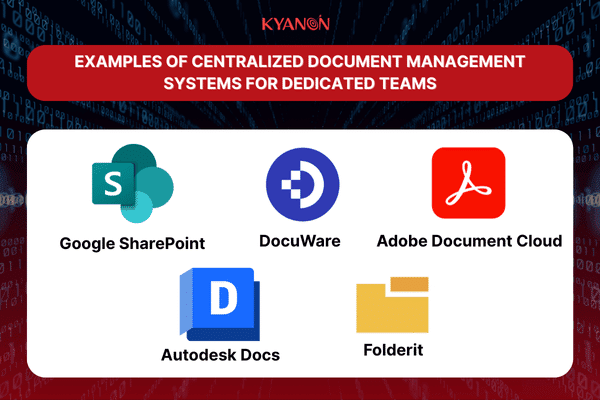
By implementing a centralized DMS, teams can significantly improve their document management practices, leading to enhanced collaboration, efficiency, and productivity.
Emerging Collaboration Tools for Dedicated Teams
Emerging collaboration tools are revolutionizing how teams work together, especially in diverse and remote environments. These tools, like Miro for interactive meetings, Asana for project management, and Slack for communication, facilitate better communication, streamlined workflows, and enhanced productivity.
| Best for | Standout feature | Pricing | |
| Slack | Team chat | Extensive team chat features and streamlined design | Free plan available; paid plans from $7.25/user/month; add Slack AI for $10/user/month |
| Zoom | Video conferencing and screen sharing | AI Companion for meeting assistance | Free for up to 100 participants for 40-minute meetings; paid plans from $13.32/user/month |
| Loom | Screen recording | Allows you to record screen with or without webcam video | Free for up to 25 videos of up to 5 minutes; Business plans from $15/user/month |
| Pitch | Building presentations | Google levels of collaboration | Free for unlimited presentations; Pro plan from $20/month |
| Miro | Online whiteboarding | Tracktalk feature lets you record board walkthroughs | Free for 3 editable boards; Starter plan from $10/user/month |
| MindMeister | Mind mapping | Integration with MeisterTask for project management from mind maps | Free plan for up to 3 mind maps; Pro plan from $10.50/month |
| Clockwise | Scheduling meetings | AI auto-reschedule feature to optimize meeting times and focus hours | Free plan available; Teams plan from $6.75/user/month |
| Asana | Project management | Flexible with project management methodologies | Free for up to 10 team members; Starter plan from $10.99/user/month |
| Notion | Shared workspace | Extensive collaboration tools within a customizable interface | Free plan available; Plus plan from $10/user/month |
| Fireflies | AI meeting insights | Create and share meeting soundbites | Free plan includes unlimited transcriptions; Pro from $10/user/month |
| Google Drive | Cloud storage | Deep integration with Google Workspace apps | Free for up to 15 GB; Google One from $2.99/month for 200 GB; Google Workspace Business Starter from $6/user/month |
| Zapier | Building internal tools | No-code app builder, database tool, and chatbot builder all in one platform | Free plan includes unlimited Zaps and projects; paid plans from $20/month |
| 1Password | Password management | Secure and easy to use across any device | $36/year for Personal; $60/year for Families |
The best team collaboration software
Cultivating a Collaborative Culture: The Human Element
No matter how powerful your tech stack or how clear your processes, it’s the people behind your dedicated team who determine the true success of collaboration. A recent study from Salesforce found that great employee experience drives great customer experience, and catapults revenue.
Effective collaboration doesn’t happen automatically, it requires intentional culture building. That is especially true in remote workplaces, where employees may feel disconnected from the organization, according to a report from Forbes.
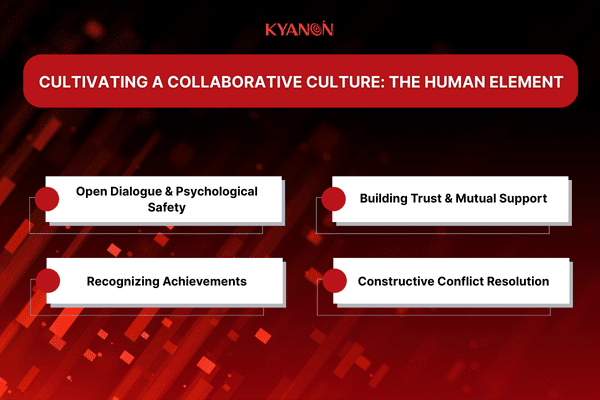
Open Dialogue & Psychological Safety
Fostering open communication goes beyond status updates, it’s about creating a space where dedicated hires feel safe to express ideas, raise concerns, and challenge assumptions without fear of negative consequences.
- Encourage a “no-blame” mindset and promote curiosity over criticism.
- Use anonymous feedback tools like Officevibe or 15Five to uncover hidden challenges within your dedicated hiring setup.
- Incorporate regular retrospectives to reflect on what’s working and what isn’t, with input from the full team, regardless of location or contract type.
Building Trust & Mutual Support
Trust is the foundation of any high-performing team and even more so in dedicated hiring solutions, where physical separation can make relationship-building tougher.
- Start by modeling transparency and reliability. Share challenges openly and honor commitments.
- Arrange informal check-ins, virtual team-building activities, or “coffee chats” to humanize remote interactions.
- Match dedicated hires with internal mentors or peers for cultural alignment and long-term relationship development.
Recognizing Achievements
Recognition is a powerful motivator, yet it’s often overlooked in outsourced or dedicated hiring relationships. Celebrate contributions to show your dedicated team they’re part of something bigger than the task at hand.
- Use public shoutouts in Slack, digital kudos boards, or end-of-sprint reviews to spotlight contributions.
- Align recognition with company values, e.g., “ownership,” “innovation,” “customer-first” to reinforce desired behaviors.
- Include dedicated hires in team success celebrations and performance incentive programs when possible.
Constructive Conflict Resolution
Conflict is inevitable, especially when diverse minds come together to build complex solutions. What matters is how conflict is handled. Managed well, it can drive innovation and stronger team alignment.
- Establish clear conflict resolution protocols within your dedicated team communication best practices playbook.
- Encourage fact-based discussions, active listening, and neutral facilitation if tensions rise.
- Provide training for both internal staff and dedicated hires on cultural intelligence and conflict navigation.
Case study: How Kyanon Digital Enabled Seamless Collaboration Of a Dedicated Team for Temasek Life Sciences Laboratory Singapore

Temasek Life Sciences Laboratory (TLL) is a leading research institution in Singapore dedicated to advancing life sciences and biotechnology. To support its internal operations and facilitate seamless collaboration among researchers, TLL relies on a robust Intranet System for information sharing, workflow automation, and secure communications.
Recognizing the need for continuous maintenance, modernization, and innovation, TLL entrusted Kyanon Digital with the critical responsibility of supporting and enhancing its Intranet System.
By delivering a holistic approach that combines technology expertise, proactive strategies, and process optimization, Kyanon Digital continues to support Temasek Life Sciences Laboratory in driving innovation and efficiency in life sciences research.
Explore the full case study here.
Measuring & Optimizing Collaboration: Continuous Improvement
True collaboration is not a one-time setup, it’s an evolving process. Even with the best tools, culture, and dedicated hiring practices, teams must continuously assess and refine how they work together.
Measuring effectiveness and acting on insights ensures your dedicated team doesn’t just stay aligned, they continuously improve.
Key Performance Indicators for Collaboration
To track how well your dedicated team is collaborating, define measurable KPIs tied to both productivity and engagement. These indicators help pinpoint bottlenecks, inefficiencies, and cultural disconnects.
Common collaboration KPIs include:
- Task Completion Rate: How many assigned tasks are completed on time?
- Cycle Time: How long it takes to go from task initiation to completion.
- Communication Responsiveness: Average response time on key channels (e.g., Slack, email).
- Meeting Effectiveness: Team feedback on whether meetings are clear, actionable, and necessary.
- Cross-Team Dependency Resolution: Time to resolve cross-functional blockers, especially in dedicated hiring solutions with distributed roles.

Tip: Tools like Jira, ClickUp, and Notion can auto-generate dashboards for these metrics, helping managers stay proactive instead of reactive.
Regular Feedback & Retrospectives
Even the most sophisticated KPIs can’t replace the value of human insight. That’s where structured feedback loops come into play, both from internal teams and dedicated hires.
- Hold biweekly or monthly retrospectives using frameworks like “Start, Stop, Continue” or “Glad, Sad, Mad.”
- Use pulse surveys and 1:1 feedback sessions to understand how supported your dedicated team feels.
- Ask targeted questions: Are our collaboration tools for dedicated teams sufficient? Are team members aligned on project goals? Is communication clear and timely?
Stat Insight: Employees are 3.6 times more likely to strongly agree that they are motivated to do outstanding work when their manager provides daily (vs. annual) feedback. (GallUp Workplace)
Data-Driven Strategy Adaptation
Tracking and feedback only matter if you act on them. Use insights to fine-tune your dedicated hiring approach, whether that means reassigning resources, adjusting workflows, or updating tooling.
- Low task completion? Revisit the onboarding process for dedicated hires and clarify role expectations.
- Communication bottlenecks? Re-evaluate your dedicated team communication best practices and update protocols or platforms.
- Drop in morale or engagement? Introduce new rituals, recognition systems, or cultural alignment initiatives.
Continuous improvement ensures your collaboration efforts don’t plateau. With the right metrics, regular retrospectives, and a willingness to adapt, your dedicated team becomes more than a workforce extension, it becomes a strategic, scalable asset.
Common Collaboration Mistakes in Dedicated Hiring (and How to Avoid Them)
Collaboration is the backbone of successful dedicated hiring solutions, yet it’s also where many teams run into trouble. From miscommunication to siloed workflows, these issues can quietly undermine even the most well-planned strategies.
In this section, we’ll break down the most common collaboration mistakes in dedicated hiring, particularly when working with dedicated hires, and offer actionable advice to sidestep them.
You’ll also discover dedicated team communication best practices and the right collaboration tools for dedicated teams to keep your workflows smooth and effective.
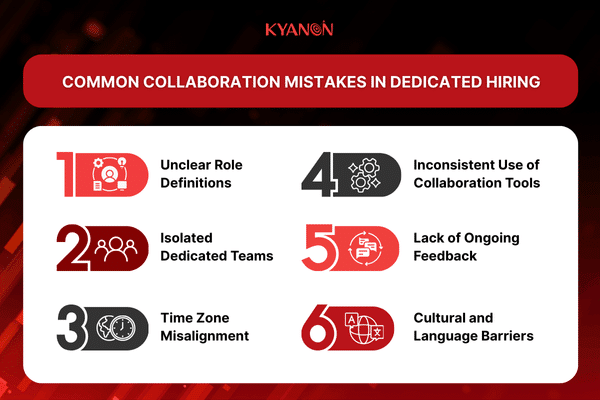
1. Unclear Role Definitions
To avoid confusion and overlap, clearly define each team member’s responsibilities using structured role-mapping tools such as a RACI matrix during the onboarding process.
2. Isolated Dedicated Teams
Dedicated hires often work in silos if not properly integrated. Ensure they are involved in regular team meetings, shared projects, and company-wide communications to foster alignment and inclusion.
3. Time Zone Misalignment
Differences in working hours can delay feedback and progress. Establish overlapping work periods and define which types of communication should be synchronous versus asynchronous.
4. Inconsistent Use of Collaboration Tools
Using different platforms across teams can lead to miscommunication and inefficiencies. Standardize a set of project management, communication, and document-sharing tools, and ensure proper onboarding on their usage.
5. Lack of Ongoing Feedback
Without continuous feedback, small issues can escalate. Schedule regular check-ins, sprint retrospectives, and create channels for open, constructive feedback.
6. Cultural and Language Barriers
Misunderstandings may arise due to differences in communication styles or cultural expectations. Promote cross-cultural awareness, provide guidelines for clear communication, and use documentation to reinforce clarity.
In conclusion
Seamless collaboration doesn’t happen by accident, it’s the result of intentional planning, the right tools, open communication, and a culture of continuous improvement. Whether you’re onboarding new dedicated hires, selecting collaboration tools for dedicated teams, or aligning on shared goals, every step plays a role in the success of your partnership.
In today’s fast-paced, digital-first world, businesses that master the art of working with dedicated hiring solutions gain more than just cost efficiency, they unlock agility, innovation, and long-term scalability.
Kyanon Digital understands what it takes to build high-performing dedicated teams that feel like an extension of your in-house operations. From setting up crystal-clear communication protocols to integrating the right tech stack and fostering a collaborative culture, we help you turn remote collaboration into a competitive edge.
Why Partner with Kyanon Digital?

We’re a Tech Partner, Not a Recruiter
We build your team strategically, aligning talents with your software vision and roadmap, not just job requirements. With ongoing upskilling and expert support from our Center of Excellence, your talent stays ahead of challenges and delivers results.
Comprehensive Talent Ecosystem
Kyanon Digital talent ecosystem encompasses over 50,000 technology professionals
- Internal Talent Core: 300+ professionals
- K-Fresh Program: Nurturing Future Digital Leaders from 18 Universities in Vietnam
- External Talent Network: 15,000+ premium candidates
- Partner Network: 1,000+ trusted partners
Your One-Stop Talents Impact Solution
We manage from talent acquisition to HR management for your tech workforce, freeing your team to focus on core business and innovation.”
Let Kyanon Digital be your trusted partner in building, managing, and optimizing your dedicated hiring strategy. Contact us today!
Key Takeaways
- Define Clear Roles and Goals Early On: Align on responsibilities, project objectives, and KPIs from the beginning to avoid confusion and miscommunication.
- Foster Open and Transparent Communication: Use reliable collaboration tools and encourage regular, honest feedback to build trust and accountability.
- Adopt Agile Methodologies: Agile practices like daily stand-ups, sprints, and retrospectives enhance flexibility and ensure continuous alignment with evolving project needs.
- Invest in Structured Onboarding: A strong onboarding process helps dedicated team members ramp up quickly and feel connected to your company culture.
- Turn Time Zone Differences into Advantages: With smart planning, you can create near-24/7 development cycles, speeding up delivery without sacrificing quality.
References
- The Impact of Effective Onboarding, Talent Insight
- Gartner Survey Reveals 84% of Marketers Report Experiencing High ‘Collaboration Drag’ From Cross-Functional Work, Gartner
- Delivering on the promise of Digital Collaboration, Deloitte
- Collaboration Tools Market, Future Market Insights
- Team collaboration tools, TechTarget
- 20 Team Collaboration Trends to Know, Fit Small Business
- Project Management Statistics 2025 By Quality, Standards, Objectives, Market.us Scoop
- 15 Team Collaboration Statistics, Fit Small Business
- The State Of Workplace Communication, Forbes
- Workplace Communication Statistics (2025), Forbes Advisor
- The Experience Equation: How Happy Employees And Customers Accelerate Growth, The Forbes Insights in association with Salesforce
- How Loneliness And Remote Work Are Shaping The Employee Experience, Forbes
- How Effective Feedback Fuels Performance, GallUp Workplace
Get the Vietnam Software Outsourcing Pricing Guide 2025
Your shortcut to Vietnam’s outsourcing costs and key market insights.

Why work with Kyanon Digital?
- Expertise Trusted by Fortune 500 Clients
With deep experience serving Fortune 500 companies, we deliver tailored, high-impact solutions that meet the unique demands of global enterprises. - A World-Class IT Team
Our 500+ IT experts—spanning consulting, project management, technical architecture, software engineering, QA, DevOps, and AI/ML—are committed to excellence in every project. - Quality at the Core
Certified under ISO 9001, our quality-first approach guarantees precision, reliability, and continuous improvement. - Uncompromising Security
ISO 27001-certified, we integrate robust security into every process, leveraging advanced technologies to protect your data against evolving threats.



